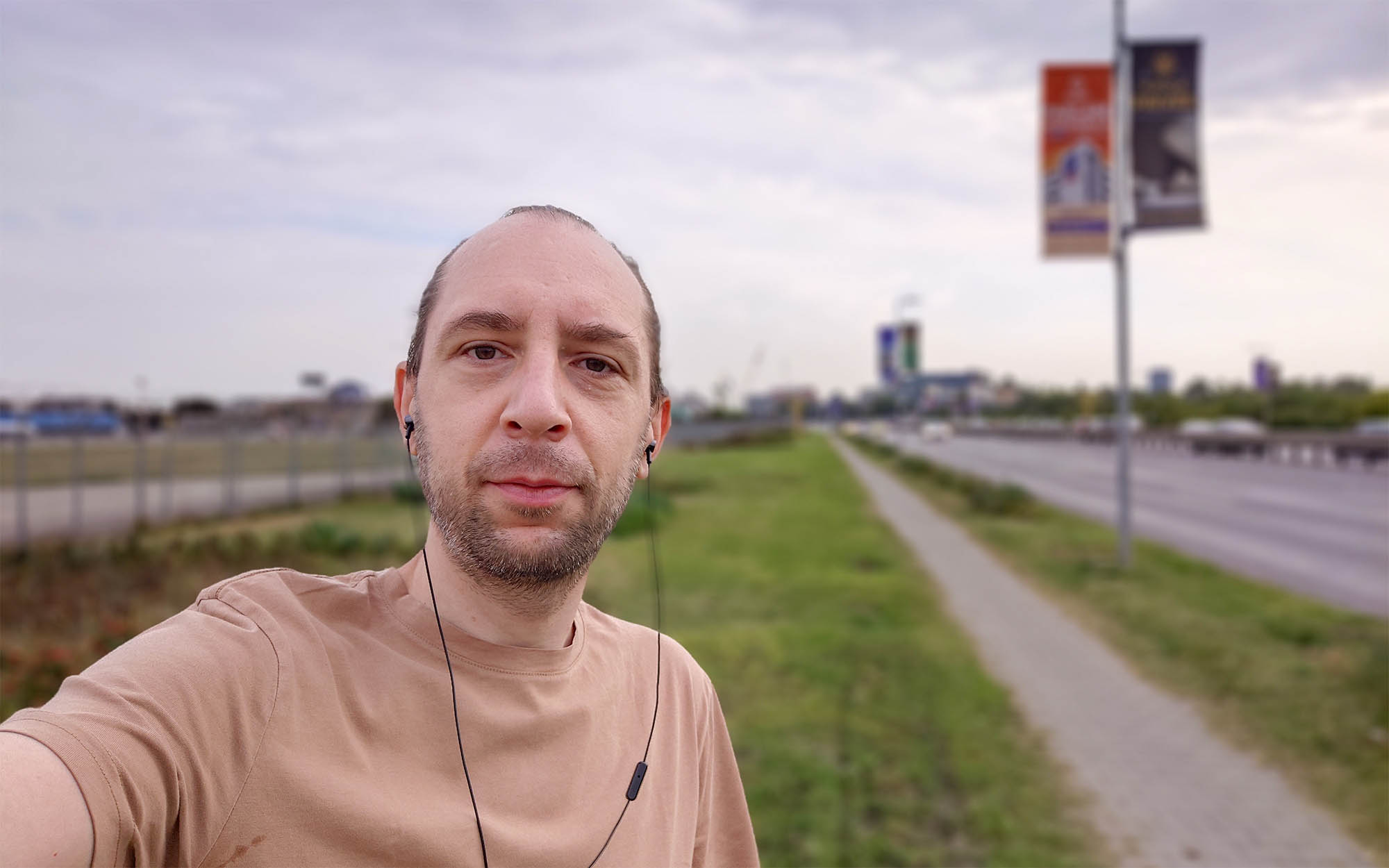JUMP TO
Learn how to improve your eyesight naturally and avoid wearing glasses or having costly eye surgery. Choose to educate yourself and discover natural solutions for improving eyesight. Choose to live a life where you can see clearly without the need for glasses or medical interventions.
I used to wear glasses for 15 years until one day when I just got rid of them. Since that day, 27 years ago, I have been able to improve my eyesight naturally and to avoid wearing glasses.
In this article I want to share with you all that I learned in my eyesight healing journey. We’ll discuss eye health, eye doctors, vision problems, and I’ll share with you all the natural solutions for managing my eyesight. You’ll also understand the problem with glasses, and why most people literally destroy their eyesight by wearing glasses.
Your eye health is important
We use our eyes daily and we can’t conceive a life without vision. Every day we’re surrounded by visual stimuli yet we forget that our eyes aren’t really adapted to this continuous stream of visual information. Would you say that we are taking the right approach towards our eye health?
Even simple eye related conditions (like hypermetropia or myopia) can lead to symptoms like nausea, dizziness, fatigue, irritation, anxiety, or headache. That’s why I believe it’s very important to understand what’s causing these related problems and how to be in control over the symptoms while learning how to correct the cause.
I’m a person that has had eye related problems (strabismus , hypermetropia and astigmatism) since childhood and now, at the age of 43, I don’t wear any kind of glasses. But the most important thing is that I haven’t worn any kind of glasses since I was 17 years old. How was this even possible? Find out my secrets in the article below!
History of my eye related conditions
I was diagnosed with strabismus on my left eye when I was 3 years old. Besides strabismus, my left eye didn’t develop correctly from birth (probably due to nutrient deficiencies) so for the rest of my life I won’t be able to rely too much on this left eye.
To put things simply, my left eye is so weak that I can barely read a letter that’s 5 cm tall from a distance of 2 meters. I also get dizzy if I try this “experiment” for more than 30 seconds. I can see shapes and colors with my left eye, but letters get blurry (especially at the edges) instead of being sharp. This means that I always used my right eye as my “main” eye, while the left eye was there for support only.
Here’s a complete history of my eye related problems:
- I was diagnosed with strabismus at the age of 3.
- My left eye didn’t develop correctly during early childhood. As a result of this problem, I developed hypermetropia (farsightedness).
- I wore glasses from 3 years old until I was 17 years old.
- At 17 years old I decided to stop wearing glasses because, frankly, I wasn’t looking great. That was before the era of fashionable glasses. At the time, in 1999, my prescription was L +5, R +3.
- When I was 19 years old, after almost 2 years without glasses, I decided that I wanted to get an operation for strabismus. Fortunately, my doctor advised me against it since it was a risky procedure at the time (minimum age was 20 years old, if I’m not mistaken). It was something related to the development of eyes in adults.
- Around that time I started documenting myself about hypermetropia operations and I decided to wait until the technology will improve and the recurrence risk will decrease.
- Next year I would start my Bachelor studies and, during the whole 5 years of University studies, I was doing great without glasses. As a result of this, I continued without glasses and without an operation ever since.
- I finished a Bachelor’s, a Master’s, I worked as a programmer for 10+ years, all of this without wearing glasses since the age of 17. And as a bonus, my vision hasn’t gotten worse.
- This year, in 2025, I will be celebrating 27 years since I haven’t touched any kind of glasses or contact lenses, or haven’t done any kind of intervention.
- During all this time I made regular eye check-ups (every few years) and my dioptrics were always stable. My last eye check-up was in 2014.
- The eye doctor always asks me how come I don’t wear glasses (!!!)
- My eye doctor is an ophthalmologist, not an optician or an optometrist. Find out below why this is important.
A discussion on eye doctors and vision problems
Diagnosing for vision disorders that require glasses has to be done by an ophthalmologist, yet there are two other categories of eye related professionals that are allowed to issue prescriptions. Even more, most of the prescriptions for glasses are handed out by these unqualified eye doctors and not by the most qualified of the eye professionals, the ophthalmologist.
There are 3 categories of eye professionals:
- Opticians
- Optometrists
- Ophthalmologist
They all deal with eye disorders but they do this at different levels and in different ways. In this section I want to focus a bit about each of these categories of eye doctors, discussing the pros and cons for each of them.
My aim is to show you that it’s super important to go to a specialist (ophthalmologist) for any kind of eye related condition (yes, also for glasses). Depending on the country you live in, this may not be possible at first but, as with everything in life, there are ways you can do it and I’m also going to elaborate on these below.
The Optician
The optician is the least prepared of the eye doctors. Opticians are only trained to deal with glasses and contact lenses. They’re taught how to use the technical apparel in order to “diagnose” and prescribe corrective glasses or lenses, but that’s about it.
Opticians can only deal with the following conditions for which they can prescribe glasses or contact lenses:
- Nearsightedness (also called myopia)
- Farsightedness (also called hyperopia)
- Astigmatism
- Presbyopia
Most of the shops that sell glasses hire a licensed optician. Their role is to sell you glasses or contact lenses, while doing a pseudo routine check-up to make sure they prescribe something ok, just so you won’t get back the next day.
This routine check-up that an optician may perform is not in any way a medical act. And as you’re going to learn in this article, even the measurements they do aren’t in any way part of a medical standard. Also, the technical tools used in the process are usually not last generation tech, the technology can even go back as far as 10 years.
The Optometrist
The optometrist is an optician on steroids. They can deal with everything that an optician can deal with and a bit more, mostly simple eye related conditions.
Besides corrective prescriptions, optometrists can inspect the patient for more serious eye conditions like glaucoma, diabetes, cataracts, etc. Note the word “inspect” because it’s very important in the context of our discussion. Their role is to inspect your eyes for more serious conditions and, if they consider you need specialized help or consults, they can refer you to an ophthalmologist. Besides this, optometrists can also deal with local problems like eye infections and so on.
Optometrists cannot operate on the eye, they don’t have access to the technology found in professional ophthalmology clinics nor they are trained to use such technology. They aren’t allowed to use eye drops in order to do accurate eye measurements or other various advanced tests.
So an optometrist is more prepared than an optician but he/she is not an eye doctor (ophthalmologist). Their role is to provide the patient with quick access to medical advice related to the eyes. They can also refer the patient to an ophthalmologist, in case more serious eye related disorders are detected.
In theory this sounds all good and nice but there are some problems as well. Let’s discuss the problems one by one:
- Optometrists don’t have enough technology to detect serious problems in the initial stages.
- Their methods are mostly based on 60+ years old observations, not last year’s technology. This means that optometrists can’t detect serious eye conditions in the early stages.
- Related to prescriptions of glasses, optometrists aren’t allowed to use eye drops in order to perform correct advanced measurements on the eye – only an ophthalmologist can do this. What this means is that optometrists cannot provide the patient with absolute accurate eye measurements.
- Since optometrists can be found easily, most people will go to them for a routine check-up, and most people will rely on an optometrist all their life.
- In some countries (like Norway, Denmark, Sweden, UK) you can’t even have access to an ophthalmologist without a written note from the optometrist. If you ask me, this isn’t in any way a healthy approach and it looks to me like a classic case of putting money before one’s health.
The Ophthalmologist
The ophthalmologist is actually the only true eye doctor out there. An ophthalmologist is medically trained in all aspects of the eye and eye conditions, from dioptrics to operations on the eyes and the use of complicated high-tech devices that make their diagnosis very precise.
Ophthalmologists do not work alone, they usually have 1 or 2 nurses that help them with basic stuff like taking regular measurements of the patient’s vision using the technical gear, drops and so on. The ophthalmologist is always the one interpreting the results, taking decisions or implementing all medical procedures on the patient’s eyes.
Depending on the country that you live in, you may not have direct access to an ophthalmologist and so you may need a note from your personal doctor or from an optometrist. Sometimes the ophthalmologist will not even perform measurements for glasses, in which case you’ll be better off finding another ophthalmologist instead of going to the optometrist.
My advice is to always go to an ophthalmologist for all your eye problems, because they are the most trained and skilled of the eye doctors. Ophthalmologists have more technology at their disposal compared to other eye professionals, and they’re the ones with the best education in the field of ophthalmology.
An overview of eye disorders
Talking about eye disorders in general, there are 2 main categories of eye related conditions. Let’s briefly discuss them below:
- Refractive Errors – These are the most common and these conditions require the person to wear glasses or contact lenses. Myopia, hypermetropia, astigmatism, presbyopia are refractive errors.
- More Serious Conditions – Some of these can be very dangerous for one’s health since any of these problems can lead to losing one’s eyesight or can even lead to death. The list includes glaucoma, cataract, retinal disorders, corneal disorders, eye trauma.
The goal of this article is to inform you about the first category, namely refractive errors. My aim is to provide insights that could help you decide if glasses are something that you really need. I’ll share with you my tips on how I managed to avoid glasses in my 20s and 30s.
The problem with glasses
Glasses are typically used for vision correction of refractive errors, such as reading glasses or distance glasses. The problem with glasses is that, when used too long or the prescription is too strong, glasses will actually make your eyes dependent on them. Long-term wearing of glasses will contribute to a weakening of the eye muscles, leading to what’s called “glasses dependency”.
Dependency of glasses refers to a situation where the muscles of the eyes will start to rely more and more on glasses and you’ll lose the ability to focus using your eye’s own lens, the crystalline. You’ll get a stronger prescription every few years or so, because your eyes won’t be able to adapt to various conditions like poor light, winter season, stress, and so on.
My history with glasses
I never liked glasses and the main reason was that I simply couldn’t adapt to them. I never found the “perfect” pair of glasses, they would always become itchy or I would break them while playing outside. The best looking glasses have always been too expensive for my parent’s budget, so the pairs that I would get would always be … well, ugly!
I wanted so much to get rid of glasses that one day I literally broke them by accident and that was the end of it. Initially I was shocked since now I didn’t have my glasses anymore, but after a few weeks my mind simply adapted to the new situation … I was now living without glasses.
I now understand that a big part of me simply didn’t want those glasses anymore and I resisted the temptation to buy yet another new pair of glasses. I was 17 years old when this event happened, and that was 27 years ago.
At that moment, I promised to myself that I won’t wear glasses anymore and that I will do everything in my power to avoid them, at least until I would be 43 years old. My mindset was set on this and today, at 43 years old, I’m still glasses-free.
At the age of 17 my eyes were able to partially compensate for the dioptrics that I had. I didn’t have a perfect vision (nobody does) but I taught myself how to maintain my vision at a constant level. I taught myself how to say enough is enough when I felt that my eyes were tired. With time I understood that having good vision is not only about genetics, but also about respecting your eyes and using them with care and respect (epigenetics).
What is Epigenetics? Think of epigenetics as the way the environment and your perception influences the development of cells and ultimately you. Epigenetics literally means control above the genes. What this means is that, while you have genes and a genetic code, you “choose” to activate what genes to read and not read based on the input received from the environment (perception). Perception influences the way your cells interpret the environment and, as you’ll discover later in this article, this has a big influence on your eyes (and on your entire body for that matter).
Over the years I developed my own rules and techniques for keeping my eyes healthy. With time I realized there are a few common stressors that will eventually lead to eye fatigue, hence the need for glasses. Learning to minimize or completely stop these stressors will always lead to more chances of living a glasses-free life.
Causes of poor eyesight and practical solutions
Let’s look at some of the possible causes for developing poor vision (short term or long term) in the area of refractive errors. Note that we’ll discuss each of these causes for poor eyesight in detail and I’ll also share with you my solutions for improving your vision by addressing the root cause of the problem.
The main causes for poor eyesights and hence the need for glasses are:
- Not enough natural light
- All kinds of stressors (physical, chemical and emotional)
- Emotional stress in particular is a powerful negative factor
- Poor indoor light situation
- Cloudy or constantly changing weather
- Problematic living arrangements
- Winter season
- Low quality digital screens
- Small text and poor light conditions
- Too much use of the eyes
- A diet low in whole foods
- Not enough exercise or movement
In the second part of this short series we’ll take these factors one by one, discussing what they actually mean, how they influence vision and how you can minimize the negative impact on your eyes’ health. We’ll focus on practical solutions to help you manage and improve your eyesight health.
Thanks for reading so far and I hope to see you in the second part of this guide for improving your eyesight naturally.




















